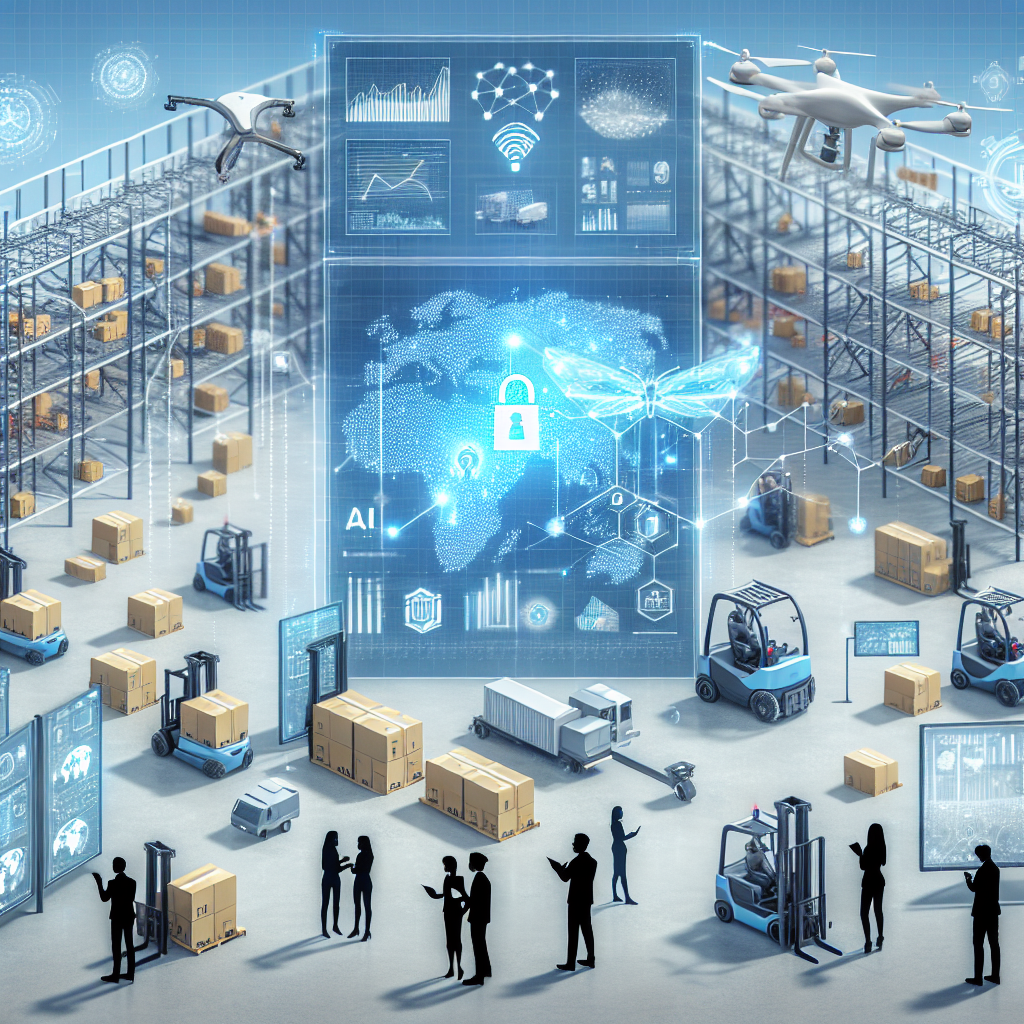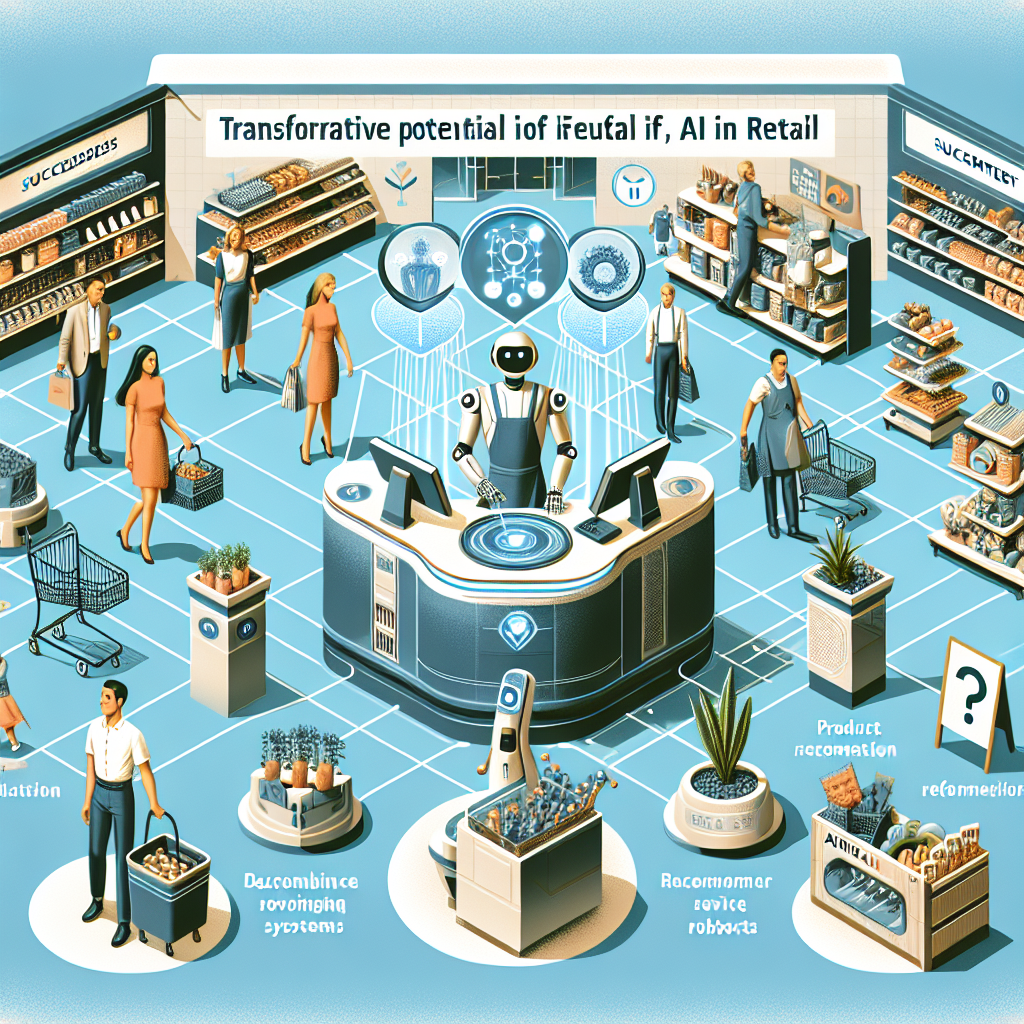Transforming Logistics with AI: Success Stories and Lessons Learned

```html
Artificial Intelligence (AI) is revolutionizing various sectors, yielding unprecedented achievements that would have been unimaginable a few years ago. The logistics industry, responsible for the complex task of coordinating the movement of goods, is finding innovative ways to leverage AI to optimize processes, cut costs, and improve efficiency. In today's post, we'll explore how AI is transforming logistics, from predictive analytics to autonomous vehicles, and share some real-world success stories and critical lessons learned.
Predictive Analytics: Reducing Downtime and Enhancing Efficiency
One of the most impactful applications of AI in logistics is predictive analytics. By analyzing historical data and identifying patterns, AI systems can predict when a piece of equipment is likely to fail, thereby allowing companies to perform maintenance before a breakdown occurs. UPS has successfully integrated predictive analytics into its operations, leading to significant reductions in vehicle downtime and maintenance costs.
However, predictive analytics isn't without its challenges. One major hurdle is inaccurate data, which can lead to incorrect predictions and unnecessary maintenance interventions. A large logistics firm once experienced this when their analytics system, based on flawed data, suggested frequent maintenance checks that disrupted operations. This highlighted the critical importance of ensuring data accuracy and quality in AI implementations.
Route Optimization: Cutting Costs and Improving Delivery Times
AI-powered route optimization is another game-changer in logistics. Algorithms can analyze numerous variables such as traffic conditions, weather, and delivery windows to determine the most efficient routes for delivery trucks. DHL has harnessed AI for route optimization, resulting in reduced fuel consumption and improved delivery times. The impact has been so profound that it has become a core component of their logistics strategy.
Despite its benefits, route optimization can face issues related to real-time data integration. For example, there have been instances where AI systems failed to update routes in response to sudden traffic changes, causing delays and customer dissatisfaction. Such scenarios underscore the necessity for robust real-time data integration and continuous monitoring to ensure optimal performance.
Autonomous Vehicles and Drones: The Future of Logistics
Autonomous vehicles and drones represent the frontier of AI applications in logistics. Companies like Amazon are experimenting with drone deliveries to expedite shipping times and reduce the need for human resources. Similarly, self-driving trucks are being tested by logistics firms to handle long-haul routes, promising greater efficiency and lower costs.
However, the deployment of autonomous vehicles and drones comes with its own set of risks. Regulatory hurdles, safety concerns, and technological limitations have led to setbacks. For instance, a leading logistics company had to halt its drone delivery program due to regulatory pushback and safety incidents. These challenges illustrate that while the potential for AI in logistics is vast, there are significant obstacles that must be navigated to achieve widespread adoption.
The Future of AI in Logistics
Looking ahead, the integration of AI in logistics is set to deepen. Innovations in machine learning, Internet of Things (IoT) connectivity, and advanced robotics will further transform the industry. Companies that successfully leverage AI will likely gain a competitive edge, offering faster, more efficient, and customer-friendly logistics solutions.
To harness the full potential of AI, logistics companies must invest in high-quality data, comprehensive testing, and continuous learning. Ethical considerations, particularly around job displacement and data privacy, also need to be addressed thoughtfully and proactively.
In conclusion, AI is driving significant advancements in logistics, offering opportunities to optimize operations, reduce costs, and enhance customer satisfaction. While success stories from companies like UPS and DHL demonstrate AI's transformative potential, challenges and setbacks provide crucial lessons for future implementations. As AI technology continues to evolve, its role in logistics will undoubtedly expand, paving the way for a more efficient and innovative industry.
```



